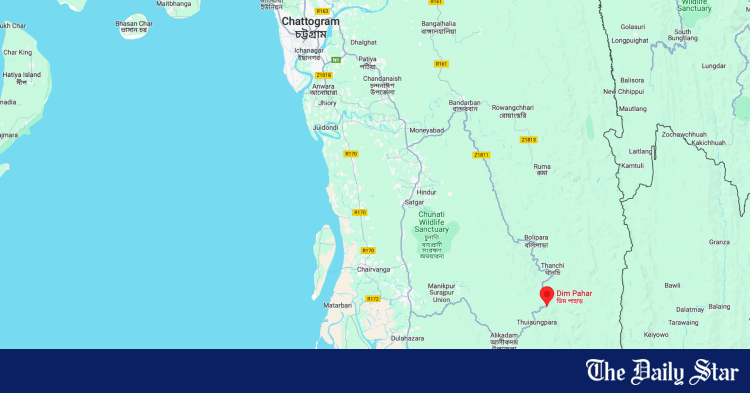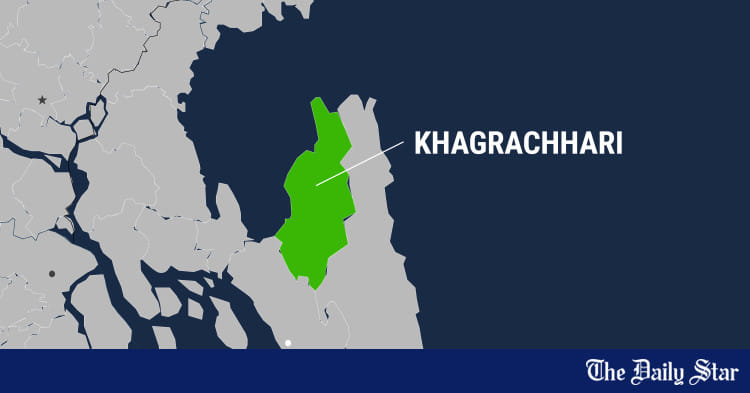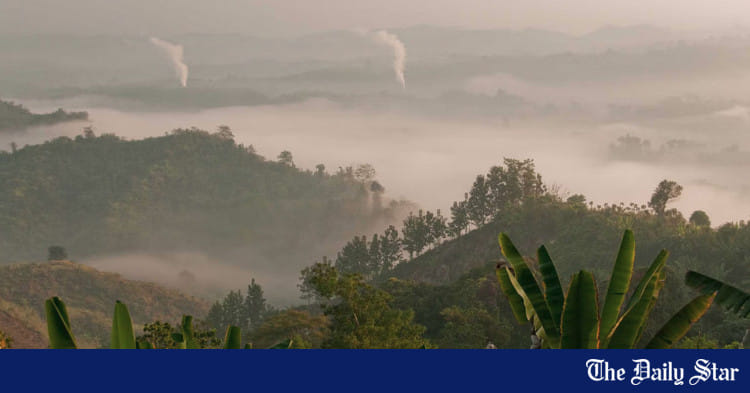Saif
Senior Member
- Joined
- Jan 24, 2024
- Messages
- 16,213
- Likes
- 8,069
- Nation

- Axis Group


The CHT Peace Accord: Progress made, but needs full implementation
The UNPFII recently acknowledged the Peace Accord implementation progress. This poses a question: to what extent has Bangladesh actually succeeded in its implementation?
The CHT Peace Accord: Progress made, but needs full implementation
The UNPFII recently acknowledged the Peace Accord implementation progress. This poses a question: to what extent has Bangladesh actually succeeded in its implementation?
The Chittagong Hill Tracts come alive during the Biju, Boisu, Bishu, Bihu, Sangrai, and Bangla New Year celebrations, with the lush hills and valleys painted in vibrant hues of festivities. Photo: Riben Dhar
The Chittagong Hills Tracts Peace Accord is an important peace accord between Bangali and ethnic communities in Bangladesh. Although almost 25 years have passed since the accord was signed, the full implementation of the accord is still a hot topic in civil society.
Amidst the pessimism surrounding the issue, the United Nations Permanent Forum on Indigenous Issues (UNPFII) recently acknowledged the Peace Accord implementation progress. This poses a question: to what extent has Bangladesh actually succeeded in its implementation?
The discontent among the CHT ethnic communities dates back to the creation of Bangladesh when the Manabendra Larma headed delegation failed to ensure cultural and linguistic autonomy from the newly formed Bangladesh government. Soon, that culminated into the creation of the Parbatya Chattagram Jana-Samhati Samiti, with an armed faction called Shanti Bahini.
Despite the Bangladesh government providing economic assistance and development endeavours through the Chittagong Hill Tracts Development Board (CHTDB), the hill community has over the years turned deeply resentful, which helped stoke the fire of ethnic Jumma nationalism.
The CHT Peace Accord was signed on 2 December 1997, by the then Jatiya Sangsad (JS) Chief Whip Abul Hasnat Abdullah (on behalf of the government) and Jyotirindra Bodhipriya Larma (on behalf of the Jumma community).
The CHT Peace Accord had a constitutional basis unlike the Rangamati Hill District Council Act 1989, which had been accepted by both parties. The accord gave recognition to the special status of the hill people, which authorised forming a Regional Council representing the local government council.
To supervise the body, a Ministry of Tribal Affairs was also set up to look into the affairs of CHT. Under the Accord, the allowance of permanent cantonments was preserved, while temporary army, ansar and village defense forces were to be gradually withdrawn.
The Accord ensures full land ownership rights to respective owners, and gives back to the hill people the land that was forcibly taken from them.
However, what complicates the scenario is the hostile attitude of the CHT militia faction, absence of a third party monitoring the implementation process, a strong government body to facilitate the implementation, and regional geopolitics affecting border security and ethnic minority community peace.
The United People's Democratic Front (UPDF) and Parbatya Chattagram Jana Samhati Samiti (PCJSS) are involved in a conflict of their own, and often engage in gun clashes with each other. According to media reports, Kuki-Chin National Front (KNF) and Marma National Party (MNP) - who were once former members of UPDF and PCJSS - are also growing as separate active armed organisations in the region.
These ultra-national and ultra-communal militia forces are in fact different factions with the same roots of origin, and they now want to establish their own ethnic autonomy – ultimately transforming the environment into a hostile one.
The CHT is an integral part of Bangladesh's territory. The government cannot, therefore, ignore these multifaceted interests pervading in this region. The Chakma community may have led the 1997 Peace Accord, but now hundreds of other small ethnic community movements have appeared, who might not have been taken into consideration at that time.
To implement the clauses fully, maybe it's time to proactively engage the smaller ethnic communities altogether.
Obviously, the picture is not entirely bleak. The government claims to have successfully implemented 48 out of 72 provisions, which is however often countered by the PCJSS and others. Nonetheless, it has successfully implemented important provisions such as demobilisation, disarmament, re-integration and prisoner release, soon after the signing. It was an immediate step to improve and better the violent conditions of the CHT.
Bangladesh now has a fully-functioning-dedicated Ministry of Chittagong Hill Tract Affairs. The special rights have enabled the hills community to be mainstreamed into the Bangladesh society; especially the quota system in public universities and public service commission that have enabled the hill people to gain considerable momentum in Bangladeshi society. However, the question remains over accommodation, or assimilation, of the ethnic community into Bangladeshi nationalism.
Be that as it may, the ethnic community is certainly at a better socio-economic place than at previous times, partly due to the development and infrastructural changes made in the CHT region.
Another reason for the difficulty of implementation of the Peace Accord is the ultra-nationalist ethnic politics emerging in South Asia. Despite steady economic growth, South Asian ethnic communalism is tending towards instability and unpredictability in recent times.
The failed strategic parity of India-Pakistan, a growing affinity towards India-China cooperation, Myanmar's ethnic violence, persecution of the Rohingya, India's ultra-nationalist separatism in the Northeast, are all affecting their close neighbors.
Bangladesh can't resist the tidal waves when its border is surrounded by India and Myanmar.
The latest case of Kuki-Chin National Front's (KNF) reported nexus with Jamaatul Sharqiya perhaps is a new phenomenon. KNF's rivalry with UPDF and other ethnic separatist forces has often resulted in bloodbaths, turning peaceful villages into conflict zones.
Strategic analysts have also pointed out to the fact South Asian cross-border smuggling and terrorism has inevitable linkages to the instability in the CHT region. Bangladesh has already launched months-long 'special drives' against KNF, yet the porous border and hilly terrain are constraining the operation's ultimate success.
In order to ensure security of its own border, Bangladesh needs to refocus on the full implementation of the CHT Peace Accord.
What the UNPF praises is the progress that has been made on the Accord. One cannot deny that certain provisions such as demobilisation, reintegration and mainstreaming of the ethnic community have been implemented successfully. Progress has been made, but now it's time to move towards the full implementation. The key issues that still need to be addressed are specifically land acquisition and ownership, decentralisation, and ensuring ethnic minority rights.
Neither can the government do this alone, nor should the voices of minorities be unheard. What is required is a strong willpower to move towards dispute settlement and right recognition; only then can the CHT communal grievance be ameliorated.










































